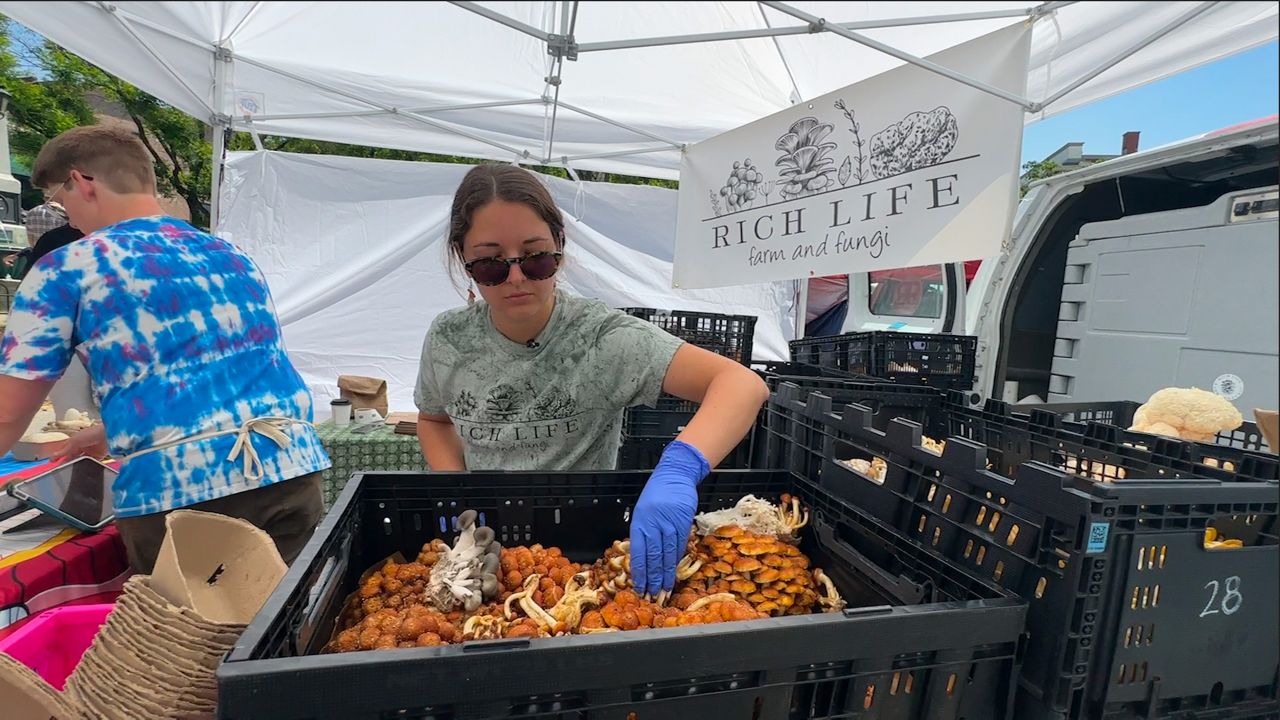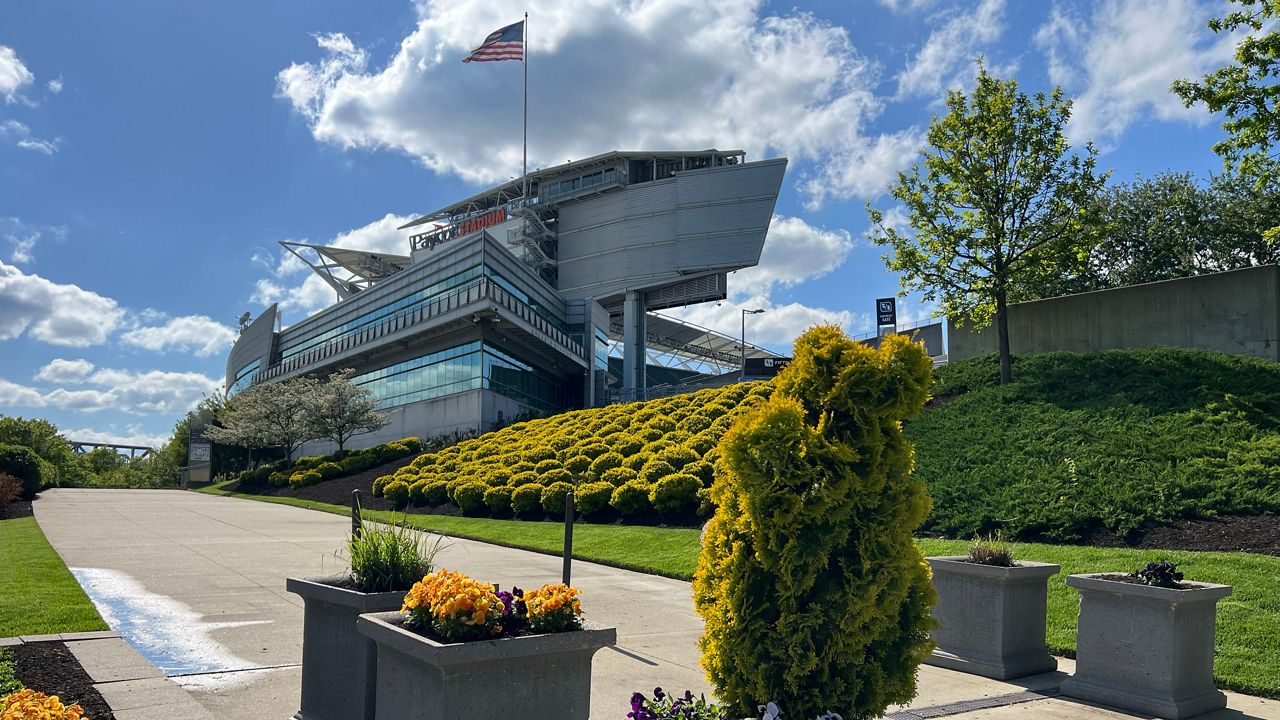CINCINNATI – On the first Sunday of the Hyde Park Farmers’ Market season, the line at Rich Life Farm and Fungi’s stand forecasts a strong selling season.
In their third year as commercial growers, Emalee and Pete Richman have seen their mushroom business take root, but to keep growing, they’ll need more options for farmers like them to sell directly to their community. If the Local Farms and Food Act passes, they hope some of the grant funding it offers can help.
The Local Farms and Food Act is part of the 2023 Farm Bill, a massive bill passed every five years that lays out policy and sets funding for several food and agricultural programs.
With an emphasis on local food systems, the Local Farms and Food Act would make it easier for farmers' markets and small to medium-sized farms to access grants to help fund efforts to improve their ability to sell directly to their communities.

Amanda Lukas, who works with the Greater Food Policy Council and has advised Sen. Sherrod Brown’s office on the bill, believes this kind of support could provide an economic stimulus for smaller farmers while also addressing some of the supply chain concerns that arose out of the COVID-19 pandemic.
“Getting food from farmers to retail spaces can have a lot of disruptions if the chains are too long,” she said.
When growers can sell directly to consumers, that shortens the supply chain and keeps the entire economic impact local. Emalee Richman said that’s what she is hoping to achieve with her proposed storefront.
“Just having a food hub for the community where we can focus on food accessibility for everyone,” she said.
As a first-generation farmer in New Richmond, Richman said there’s a huge market for locally produced food, but few places for sellers to get their products out there. She’s had the dream of building a year-round storefront for Clermont County vendors, but the upfront costs have always been insurmountable, with the grants currently available for such projects.
“The 50% match funds that are typically required are just not accessible for us,” she said. “And none cover construction costs.”
If the grants included in the Local Farms and Food Act make it through to the Farm Bill, Richman plans to apply in the hopes the project can finally get off the ground.
"We’re not looking for $500,000 or even $200,000. You know something that’s lower, with smaller match funds,” she said.
Liz Stites, the owner and director of the Hyde Park Farmer’s Market, meanwhile sees an opportunity to use these grants to expand what she can do as well. While she said she’d never before considered applying for a grant for the market, she sees a way to use this potential funding to reach more Cincinnati neighborhoods, support nutrition programs and improve access to locally grown food.
“Being able to help serve a population with the most nutritious food around is something this market needs to be focused on,” she said.
The Farm Bill is currently in the Senate Committee on Agriculture, Nutrition, and Forestry. The most recent Farm Bill was passed in 2018.










